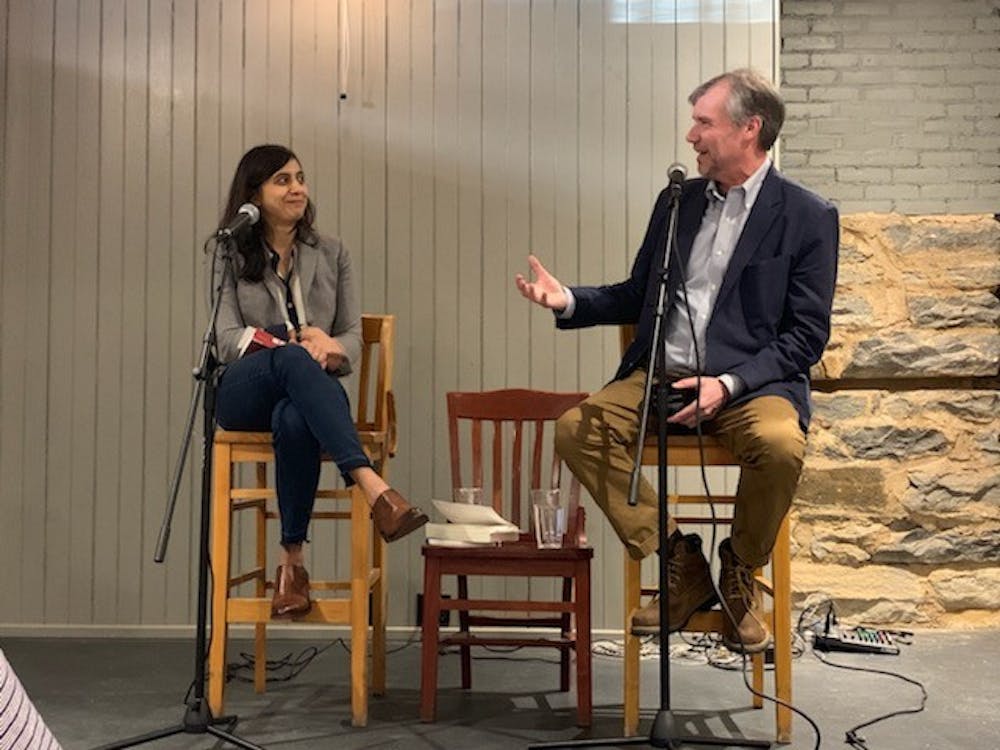Author of We the Resistance: Documenting a History of Nonviolent Protest in the United States, Michael Long gave a talk alongside human rights lawyer and activist Naureen Shah about his book at Red Emma’s on Sunday.
Long is an associate professor of Religious Studies and Peace and Conflict Studies at Elizabethtown College in Pennsylvania. He said that he wrote this book because he wasn’t able to find one to teach from for his class.
“I teach History of Non-Violence, and there was really nothing out there for me to teach and so, quite frankly, that’s the pragmatic reason for doing the book,” Long said.
He also stated that under the Trump administration there have been many protests, which he thought needed to be documented. A large part of the latter half of the book focuses on resistance under the Trump administration.
Long stated that he wanted to inform people about methods of nonviolent resistance, as well as their history. According to Long, the history of non-violent protest extends back to before the creation of the U.S.
“I wanted us to feel connected and to see the intersectionality that existed in the resistance movement even long before the United States came along,” he said. “We didn’t just emerge out of nothing.”
Long then introduced Shah, noting a piece she wrote for Amnesty International in 2015 about why the U.S. should close Guantanamo Bay.
Shah explained that the 9/11 attacks, which occurred during her sophomore year at Northwestern University, inspired her to become a human rights activist. She said that she was surprised by how the event changed her peers’ perception of her as an Asian American.
“For me, when the 9/11 attacks happened, it was not only a horrific thing of tragedy that had happened in our country that cost thousands of peoples’ lives... it was also something that changed the way everybody seemed to be talking about anything in the country,” Shah said. “My sense of my [Asian-American] identity was changing very quickly. I suddenly felt suspect.”
Long then shifted the conversation to discuss Islamophobia. Shah explained how Islamophobia in the U.S. has changed with the Trump administration.
“Under the Obama administration, we saw anti-Muslim hate but we also saw efforts to fight anti-Muslim bullying in schools,” Shah said. “You don’t have that level of resistance within the Trump administration.”
However, according to Shah, regulatory agencies including the Federal Bureau of Investigation (FBI) and the Justice Department have had problems with Islamophobia before the Trump administration.
“There was already an anti-Muslim bias, for example, the FBI training materials talked about Muslims in a way that homogenized them as one giant threat, and it already existed in the way that the Justice Department was prosecuting terrorism in this country,” Shah said.
Visiting student Tanisha Narayan wrote in an email to The News-Letter that she enjoyed the discussion because, despite being a book talk, the conversation centered around personal experiences.
“I liked that the majority of the time was spent on answering questions and talking about personal experiences rather than reading from [Long’s] book,” she wrote. “It was my first time going to an event like this and it was really nice listening to someone who [Long] had such high praise for.”





